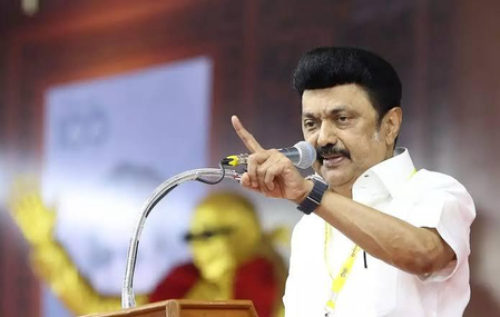The two presidential candidates with Indian/Hindu connections have been in the news with their support for decriminalizing sex- work in the United States. As persons of South Asian origins, some of us may be even more surprised that Kamala Harris and Tulsi Gabbard would participate in this conversation. By Shivaji Sengupta The two presidential candidates with Indian/Hindu connections have been in the news with their support for decriminalizing sex- work in the United States. Kamala Harris began her legal career prosecuting sex crimes. Now she seems to think that sex-work is a consensual act– two people agreeing to do sex -and, therefore, should fall within one's legal rights. Of course, she is quick to point out that there is a "whole ecosystem involved here," that we cannot ignore. The exploitation of one sex by the other, illegal exchange of money through unfair business practices - these things ought to be monitored carefully. But sex-work itself, if done right, should be legalized, she now says. Her rival, Rep. Tulsi Gabbard, a Democrat, has also weighed in. In a straight-forward manner, she told BuzzFeed News that she wants to decriminalize sex-work, asserting her clear position. "If consenting adults want to engage in sex- work, that is their right, and it should not be a crime," Gabbard said. People should have autonomy over their bodies and labor, she asserts. The very term "sex-work" signifies decriminalization. The implication is that prostitution is a job, a profession. People ought not to think of it as something cheap and dirty. If sex is not dirty, why should sex-work be? So goes the logic. Opponents of decriminalization argue that while sex per se is not something to be ashamed of, doing sex for money should be. Moreover, since the subject of sex itself is replete with morals, sex-work is bound to be. Morals are about distinguishing between wrong and right. A litmus test for morals is whether it is something you want to be done to you, or not. Would you be a party to sex-work, either as a seller or consumer? Your answer – honestly given – would determine whether you think of it as moral or immoral. For politicians and public servants, however, the question of morals regarding sex-work is a little more tricky. They have not only to explain their position on it for themselves, but they also have to take the call on behalf of the people they represent and serve. Abortion is similar. Senator Joe Biden, for example, is on record stating that although he is against abortion himself, he has always voted pro-choice. He believes that it is a woman's right to choose. Sex-work may be more complicated than abortion. For one thing, even though it is often talked about in conjunction with gender politics, we need to remind ourselves that there are male sex-workers, of both persuasions. Though, admittedly; female far outnumber males. Perhaps this is one reason why most politicians stay away from discussing it. It is refreshing to see that three different Democrats – these two and Corey Booker – have recently expressed their positions regarding this subject. As persons of South Asian origins, some of us may be even more surprised that Kamala Harris and Tulsi Gabbard would participate in this conversation. Harris’ position can be explained. She is struggling in her campaign with liberal Democrats who believe that she is not progressive enough for them; that, if elected, she might confirm her tendency to be a “centrist,” a supporter of status quo. Publicly, Harris is supporting all the progressive issues: gun control, pro-choice, Medicare for all, citizenship for Dreamers. But she is also notorious for having opposed decriminalizing sex-work in California during her early days as San Francisco’s DA, has had a reputation for being tough on crime and, in general for being a law-and-order candidate for the various positions she has contested. Being presented with an opportunity in recent radio and TV talk shows, she has been coming out as more and more liberal, though almost always with a “having said that” follow up. I respect Kamala Harris’ intellect, her lawyerly mind, and her interest in the complexity of social issues. Sex is both provocative and controversial. And, it is also a hotbed for gender politics. Just as many women, and some men, believe that women do not have a level playing field in politics, especially presidential politics, they also believe the same of sex. A “dirty old man,” may be forgiven; not so, “a dirty old woman.” To Kamala Harris, sex-work is a mine-field of bombs strategically placed by men to destroy for ever women’s reputation. It is perhaps the reason why, as DA, she went so vehemently to prosecute male consumers of sex, arresting them, while being much more sympathetic to women. Women sex-workers though did not forgive her. They lost male clients. As I see it, Tulsi Gabbard’s position is less complicated because she approaches it from a social worker’s perspective. She believes in autonomy, period. Since sex is a field (kshetra) where autonomy may be emphatically expressed, she supports sex-work, as long as no one is harmed by it. But to her Kamala Harris might say, “But people are harmed by it! It is unavoidable as human nature!” Hence, her complex position. In a column such as ours, on the culture of politics, sex-work and our presidential hopefuls’ positions on it, may teach us much about our collective, and often, hybrid culture. We all realize that while sex is a biological phenomenon, the practice of sex is consummately cultural, economic, and, therefore, political. By delving into Kamala Harris’ anger about the way rich and powerful men exploit sex-work, by listening patiently to Tulsi Gabbard’s views on the importance of the autonomy of the body, we may realize how powerful and liberating sex itself can be, only if we paid more attention to, and had more respect for those – men and women -who give us this wonderful gift with freedom and love.
Culture of Politics - Presidential candidates Kamala Harris and Tulsi Gabbard on decriminalizing Sex Work
- by Rinku
- July 23, 2019 2 minutes

Shivaji Sengupta-web











